‘Nobody cares, work harder’ - how Keegan Swenson muscled his way to gravel dominance
With all the big races to his name, he's America’s best gravel racer, and now, he has rainbow stripes in his sight

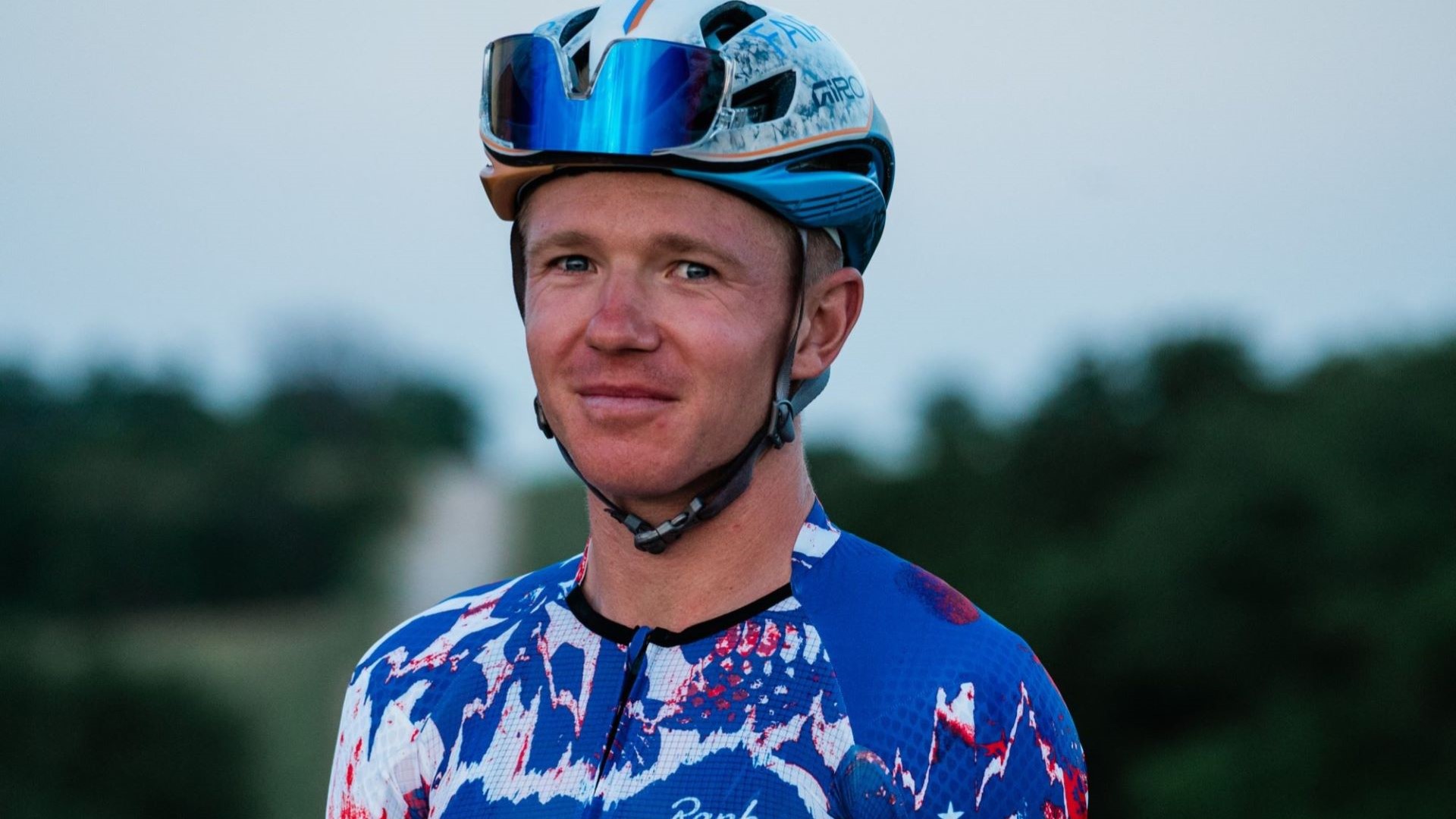
If there’s one way Keegan Swenson likes to win, it’s solo. Time and time again, he rides away from his rivals and crosses the line at the biggest gravel races with seconds, sometimes minutes, to spare on his rivals.
The inaugural USA Cycling Gravel National Championships last summer featured a wind-battered, loose course, and Swenson attacked the lead group with five miles remaining. Alexey Vermeulen, Brennan Wertz and Payson McElveen made up the chase group, but even collectively, they did not have the legs to reach Swenson. In the end, the Utah native crossed the line about 20 seconds before the others to be crowned the first-ever gravel champion.
In the past few years, 30-year-old Swenson has seemed nearly untouchable in the gravel and marathon mountain bike racing scene. He’s won the biggest and toughest races, including Unbound Gravel, SBT GRVL, Big Sugar Gravel, the Sea Otter Classic, Leadville 100, Crusher in the Tushar, as well as the USA gravel and XC mountain bike national championships. He’s won any of these multiple times, including the series overall title in the Life Time Grand Prix two years straight. He’s currently leading the Grand Prix again, which continues on August 10 in Leadville, Colorado.
Speaking to Cycling Weekly, Swenson said he has mostly been at home in Utah since Unbound. He had been training on Utah’s thin-air climbs in preparation for the upcoming Crusher in the Tushar, which was cancelled because of wildfires near the course. He pivoted to mountain biking, racing the Downieville Classic in California —where he won both the cross-country and downhill races— before resuming training at home for the 100-mile, high-altitude epic that is the Leadville 100.
For those who hadn’t been following mountain biking, Swenson may have appeared to have come out of nowhere. Yet his dominance is the culmination of decades worth of hard work and steady progress. Swenson's background includes a prolific rise over the course of a decade, culminating in a failed bid for the Olympic Games that set him on the trail he’s on today.
Do or Die
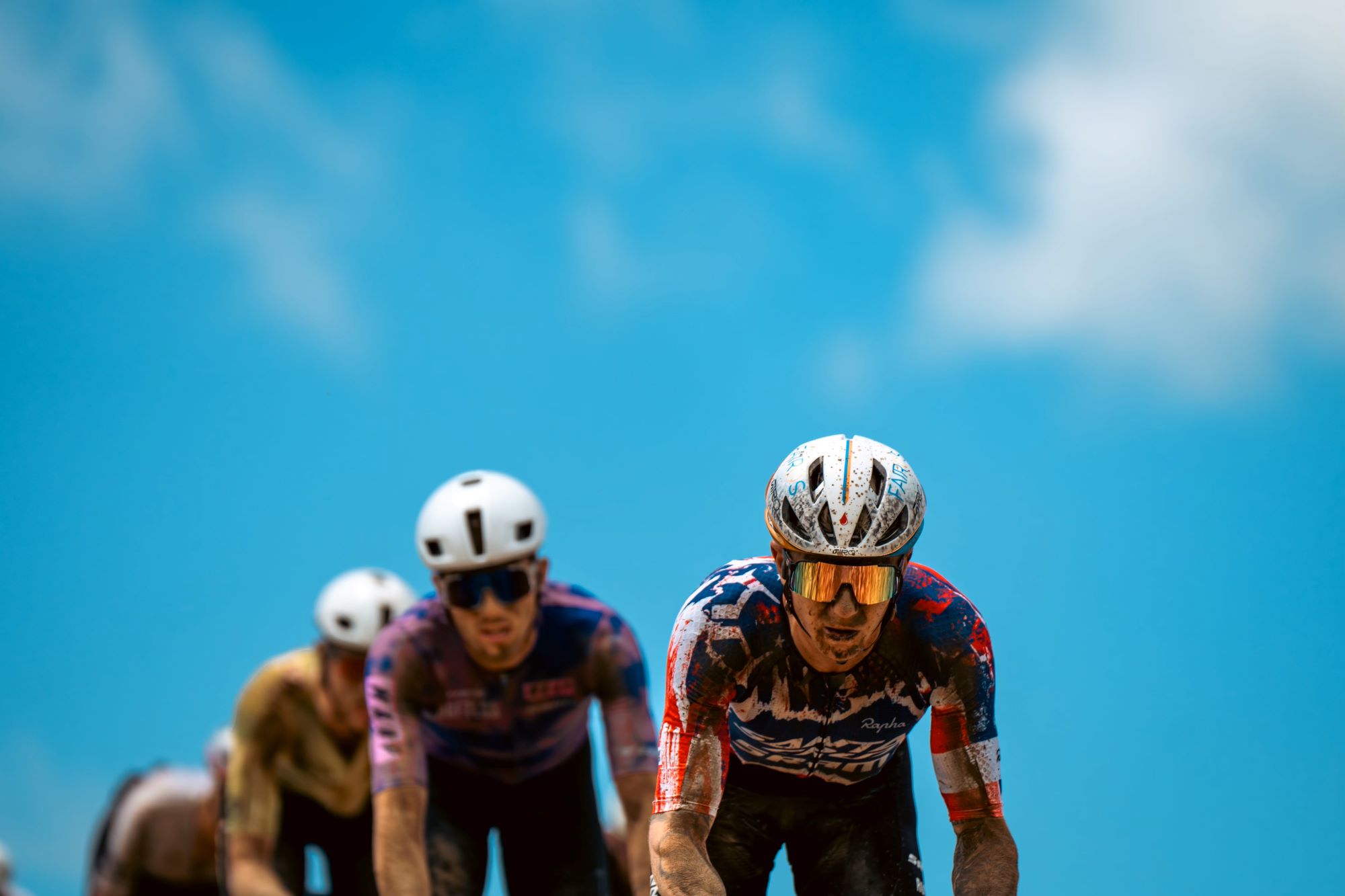
'If you aren’t pulling through, he will pull harder, and probably drop you in the process,' writes Ryan Simonovich about Swenson.
Swenson’s background and current mentality evoke a ‘do or die’ mentality that’s more steady than frantic. He grew up in Park City, Utah, raised by a father who works in healthcare and a mother who works at a ski shop. As a kid, he was a downhill ski racer, landing on a podium or two, but eventually moving on to mountain bike racing around the age of 12.
His junior career began to blossom, and he won the U.S. national mountain bike championship title in 2010 for the 15-16 age group. Two years later, his name began popping up in the cycling press. He won the 17-18 junior national championship, catching U23 riders who started the race ahead of him. After success at the Pan American Championships and at several World Cups, he ended 2012 ranked 4th in the world and signed a contract with Cannondale Factory Racing.
The latest race content, interviews, features, reviews and expert buying guides, direct to your inbox!
He then became a mainstay on the mountain bike World Cup circuit, racing punchy, technical courses against the best racers in the world. The races mostly take place in Europe, and like road racing, it’s notoriously hard for Americans to break in.
This period coincided with a lull in World Cup results by American men. While the women’s field was buoyed by the likes of Kate Courtney, Haley Batten, and Erin Huck—who all went on to race in the Tokyo Olympic Games—the American men would only earn one spot at the games.
In spring 2021, a few key races would dictate whether Swenson or rising star Christopher Blevins would fill that spot. A muddy race in the Czech Republic was the last chance to qualify, and Blevins’ 20th-place finish clinched his ticket to Tokyo.
Reflecting after the race, Swenson at the time wrote: “Disappointing race for me in Nove Mesto. The form was good and I was ready to fight for it but the legs just didn’t show up to the party. To race anywhere near the front of an elite World Cup you have to be 100%, there is no hiding and no faking it if you aren’t ready.”
Whether he knew what his future would hold at the time or not, a quote given to the Aspen Times sure reads as foreshadowing today: “The Olympics isn’t the only thing,” he said. “Sure, it would be cool to go, but there’s still a lot of other things I want to do and achieve racing bikes. So it’s not the end-all, be-all.”
New opportunities in the Life Time Grand Prix
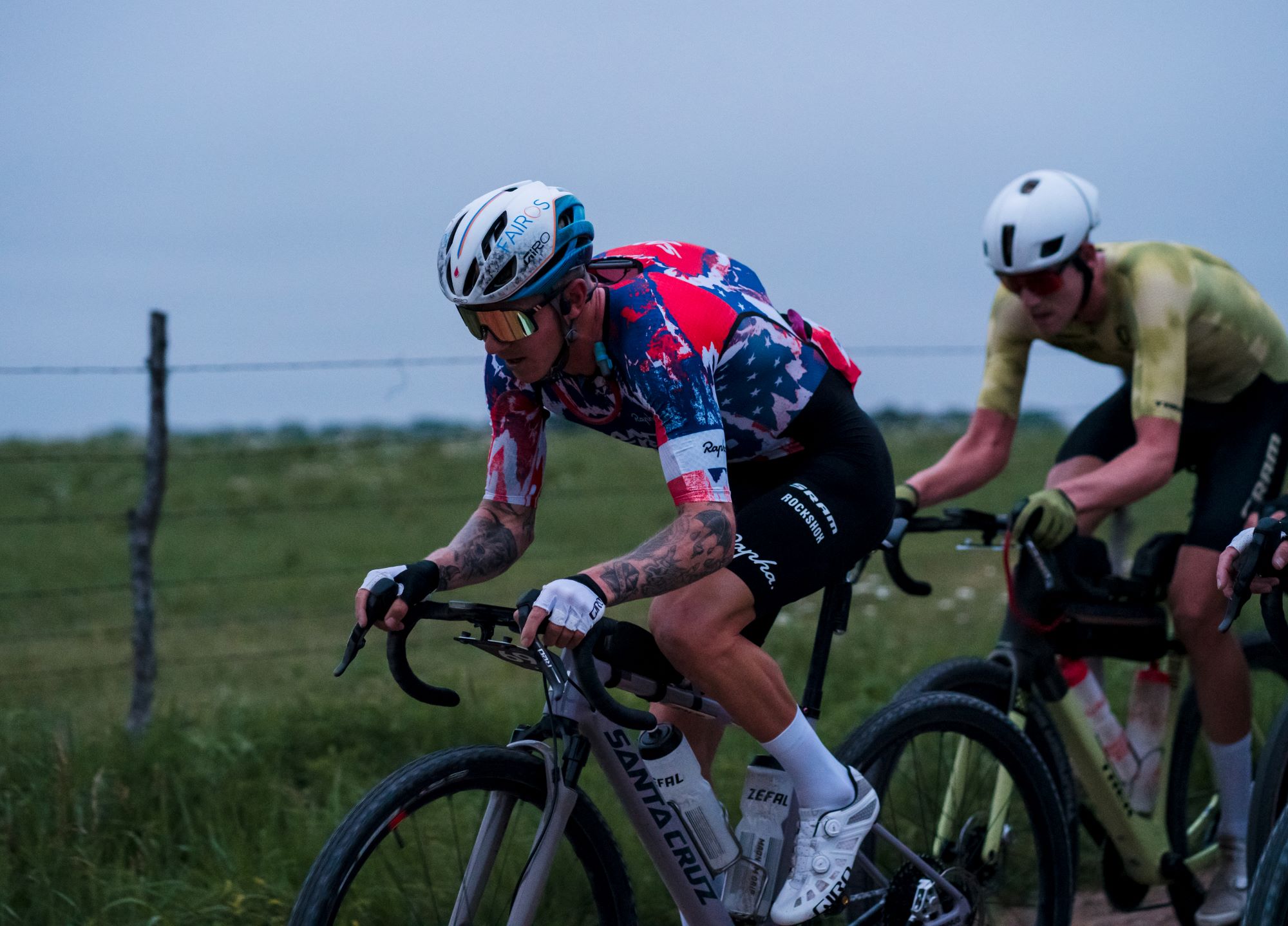
Swenson racing at Unbound Gravel in 2024
Swenson’s career had focused on XCO mountain bike racing, but he also had solid results in longer marathon-distance races, including wins at Arizona’s Whiskey 50, then part of the Epic Rides Off-Road series. Thoughts of change were already on Swenson’s mind when he was still racing XCO, and when he failed to make the Olympics, he decided to follow the voice that was calling him toward longer races.
The summer following that fateful race in Nove Mesto, Swenson would go on to XC nationals at Winter Park before winning Leadville and immediately following it up with a win at the Breck Epic stage race.
Another fateful thing happened in 2021. In the fall, fitness company Life Time announced their plans for the invite-only Life Time Grand Prix, comprising six races the company owns, including Unbound and Leadville.
Swenson hit the ground running, winning the opening round at Sea Otter and also claiming a win at Utah’s Crusher in the Tushar, in addition to Leadville. He won the overall title and only got better the following year, sprinting ahead of four former WorldTour pros to win the marquee Unbound.
There’s no great metric for determining the best gravel racer in the world. There may be an official (and unofficial) gravel world championships, but the European style of gravel racing is hard to compare to the North American style. Without a doubt, though, Swenson is considered one of the best.
He’s also thought to be one of the highest-paid gravel racers. In 2022, he raced the road world championships in Australia and, at the same time, was being courted by WorldTour teams, curious about what would happen if he traded Kansas and Colorado for the Dolomites and the Alps. Ultimately, he turned them down.
While financials are not easily found, many consider the sponsorship deals in gravel to be more lucrative than a rider like Swenson would be able to make on the road, where he would likely be shuffled into a rookie domestique role, at least initially. In gravel, Swenson and others can broker their own deals and partnerships rather than earning a salary offered by the traditional team model, giving the riders more control and, if they're lucky, more cash.
When asked, Swenson said that it’s hard to say if his income compares to others on the circuit as he doesn’t know how much others are getting paid. But a new sponsorship deal with the insurance company Fairos points toward Swensnon's business savviness in attracting non-endemic sponsorships. Swenson says that working with the company is a relief in that they offer him insurance coverage, something that most racers have to pay for out of pocket.
If Swenson is as well paid as is assumed, he doesn't show it. There are bikes and motorcycles in his garage – no Lambos a la Mathieu van der Poel. His favourite pre-training meal is pancakes (and was even before a pancake mix company sponsored him), he listens to pop punk and metal, and his social media profiles are full of standard training and racing posts, giving fans a glimpse into his life without giving away too much.
He sports a laidback attitude and is quiet but in a more confident than shy way. He lets his legs do the talking.
“Sounds a bit callous, but ‘nobody cares, work harder’ is my favourite quote,” he says. “For me, it basically just means that there are no excuses or replacements for hard work. I think that really applies to anything that you want in life, work, sports or otherwise.”
So far, this has worked out for him, and Swenson has been able to muscle his way ahead of the rest of the U.S. field. If you aren’t pulling through, he will pull harder, and drop you in the process.
As the gravel world becomes more internationalized with more Europeans coming over to races like Unbound, race dynamics and tactics are changing. This year at Unbound, Swenson put in some monster pulls, trying to establish a chase that would work together but nobody wanted to cooperate.
His approach to Unbound tactics may need a refresh, but he’s still considered the favourite at races like Leadville. Both McElveen and Lachlan Morton downplayed their chances against him in a recent pre-race press conference, saying that nobody is better at hard, climby races at altitude.
Rainbow dreams
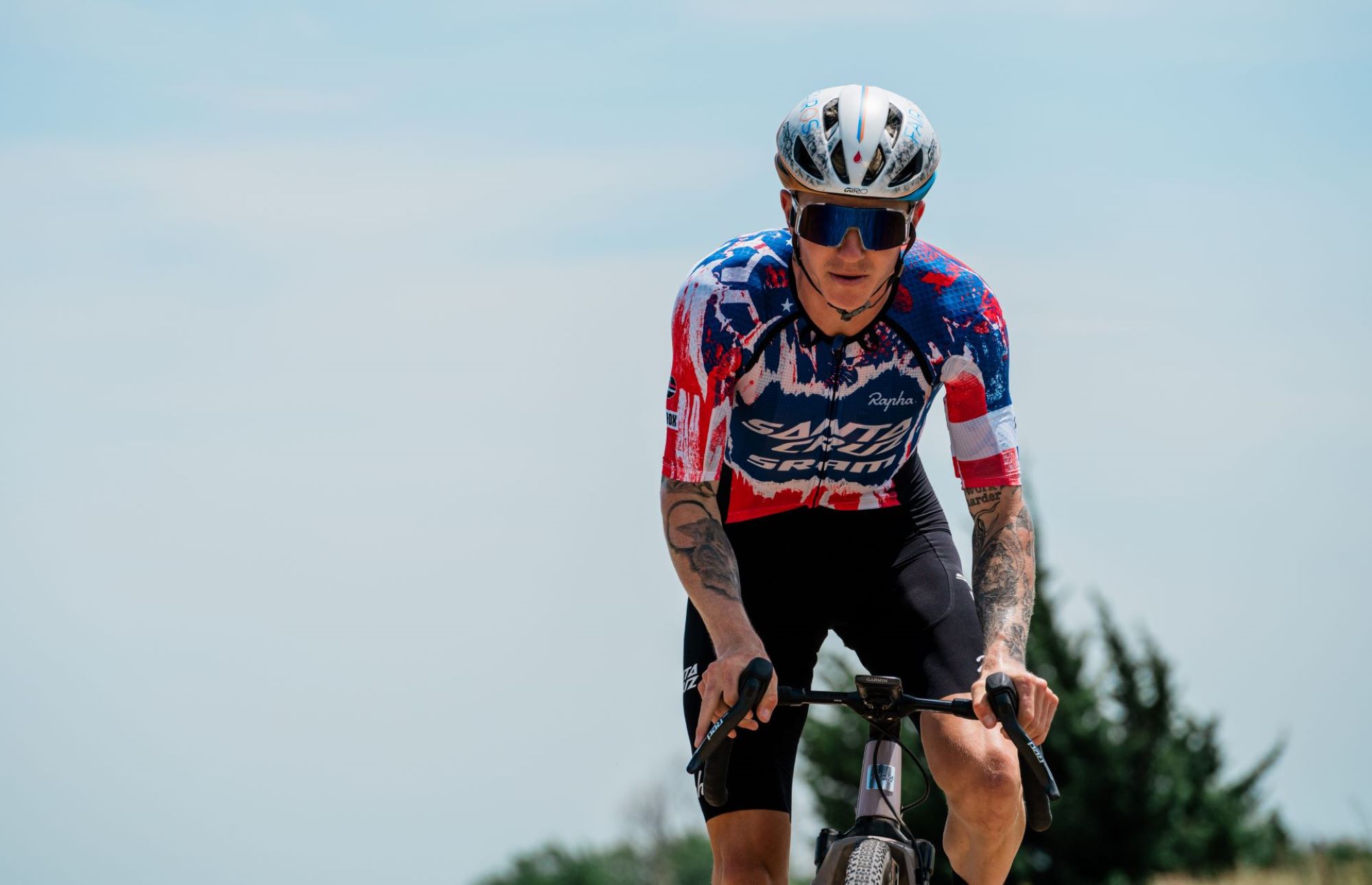
Keegan Swenson wearing his U.S. national gravel champion jersey
So what’s next for the king of gravel?
Swenson tells Cycling Weekly that he wants to win again at Unbound, and he wants to win a rainbow jersey. Whether it's on a mountain bike or gravel bike is yet to be seen. UCI points are a consideration at the world championships (for a good starting position) as is the course. This year’s worlds course in Belgium likely won’t suit him as much as a more mountainous course, but he’ll make the call about whether he attends or not after Leadville and SBT GRVL.
“I just need a long, hard course with a bunch of climbing,” he said.
And nobody can argue with that.
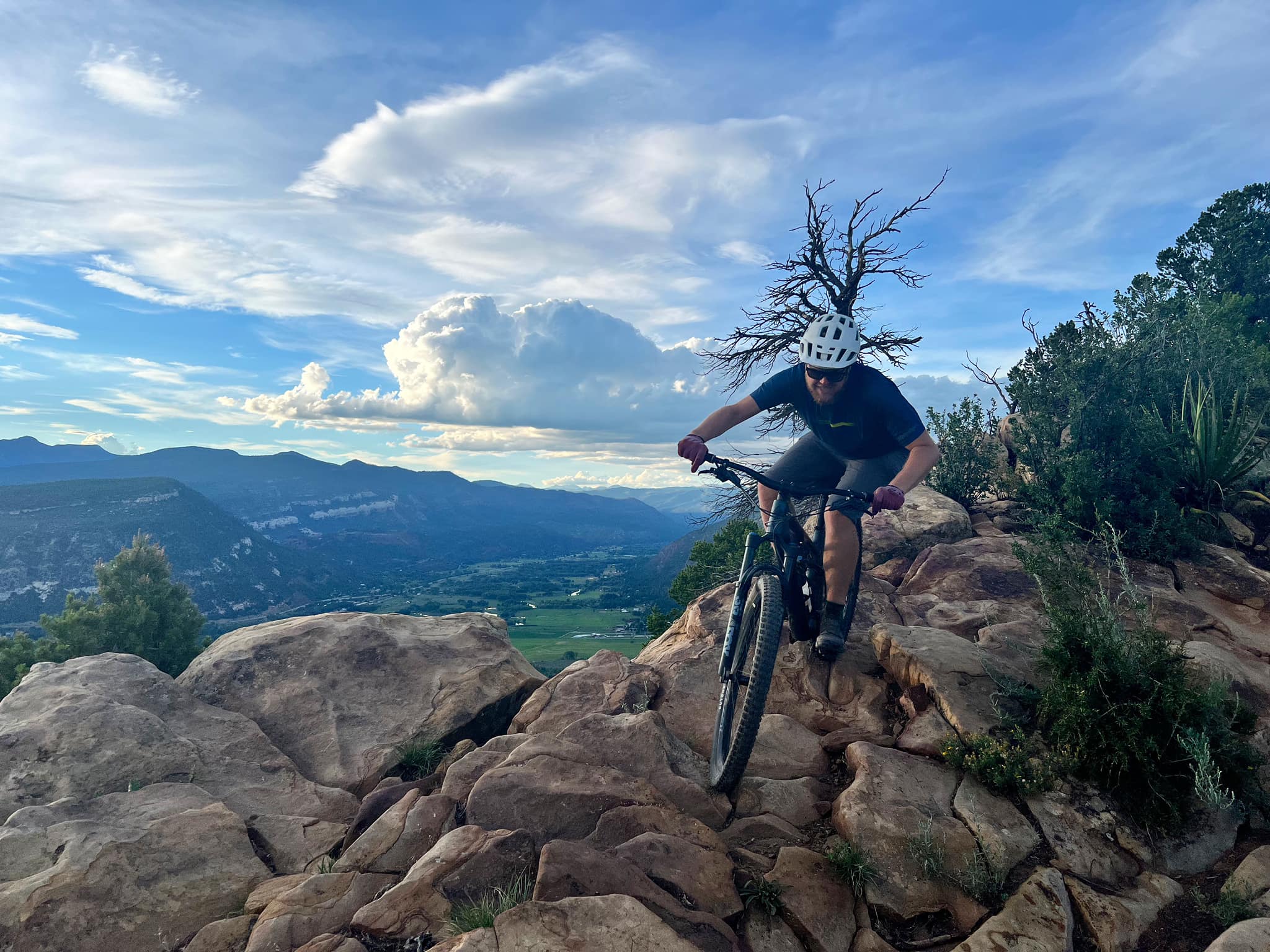
Ryan Simonovich is a journalist who covers mountain biking and cycling for Cycling Weekly, Singletracks, Velo, Escape Collective and other publications. He has spent a decade participating in the sport as a journalist, industry member, and racer, and he currently lives and rides in Durango, Colorado.